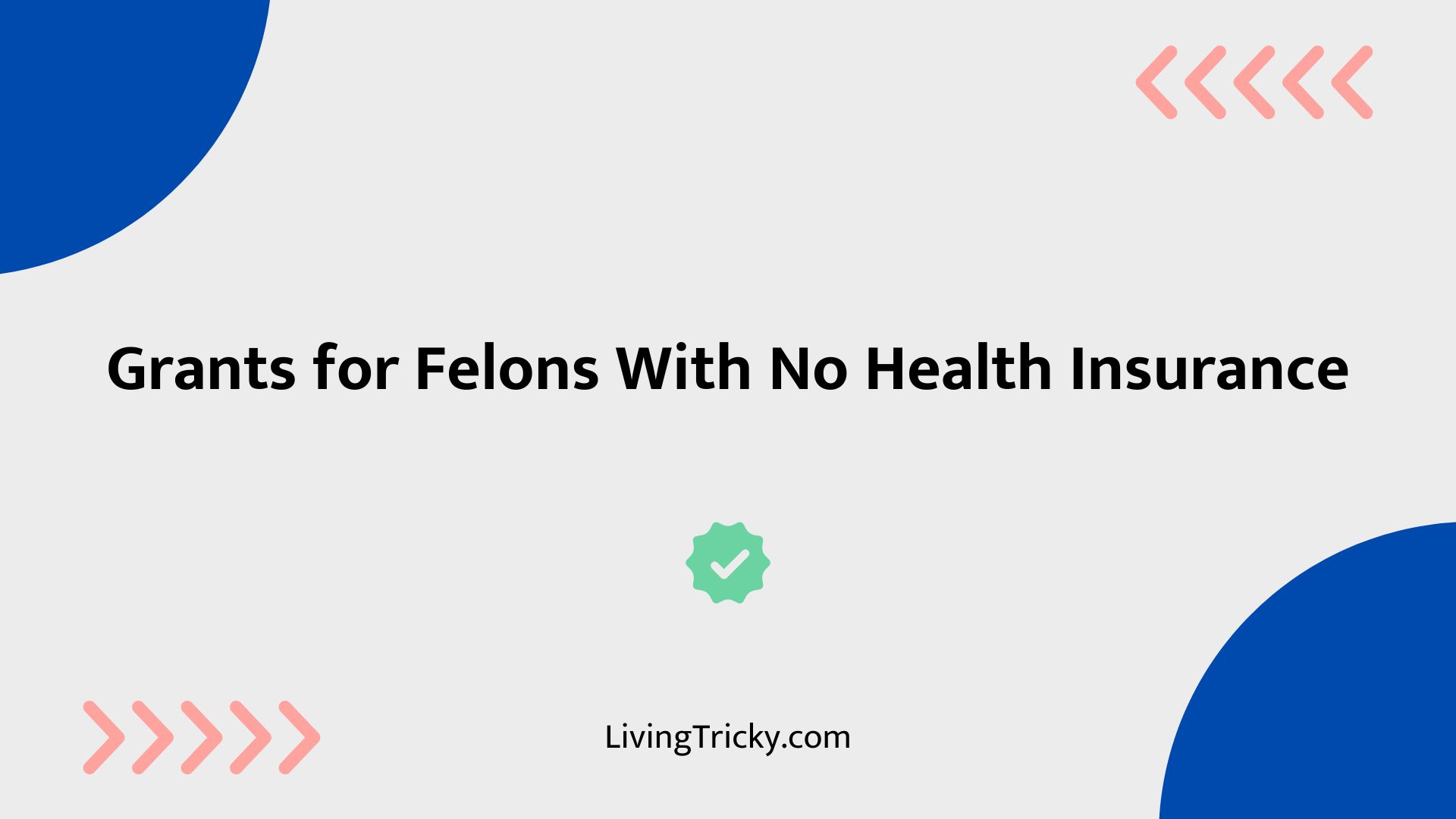If you’re a felon struggling with health insurance, you’re not alone. Many face significant barriers that prevent access to necessary medical care. Fortunately, grants specifically designed for individuals in your situation exist. These financial resources can help bridge the gap and connect you to essential health services. Understanding how to navigate these options is key to improving your health outcomes. Let’s investigate the grants available and how you can take advantage of them.

Key Takeaways
- Health Resources and Services Administration grants can fund community health centers offering care to uninsured felons.
- Substance Abuse and Mental Health Services Administration provides grants for mental health services for individuals with criminal records.
- The Affordable Care Act expands Medicaid eligibility, allowing low-income felons to access healthcare coverage in participating states.
- Nonprofit organizations like the National Health Care for the Homeless Council assist felons in navigating health insurance options.
- Research and apply for grants through platforms like Grants.gov, specifying health needs and circumstances related to felony status.
Understanding Health Insurance Challenges for Felons
Understanding health insurance challenges for felons can be crucial for securing necessary medical care. Many ex-offenders face barriers like joblessness and the stigma of a criminal record, which limits their access to jobs offering health benefits.
Did you know that about 60% of ex-felons remain uninsured after release? Medicaid expansion could provide affordable health care, yet not all states have adopted it, leaving many without options.
Additionally, a lack of understanding about eligibility for programs further exacerbates health disparities. With chronic health conditions common among this population, securing grants for felons can offer essential financial assistance in maneuvering these challenges.
Available Grants for Health Services
Wondering how you can secure health services as a felon? Various grants are available to help you access medical care, particularly if you’re uninsured.
The Health Resources and Services Administration provides funding for community health centers serving low-income patients, including felons.
Furthermore, the Substance Abuse and Mental Health Services Administration offers grants for mental health and substance use treatment aimed at underserved populations.
Thanks to the Affordable Care Act, many states expanded Medicaid eligibility for low-income felons.
In addition, local nonprofit organizations often provide emergency health services and assistance programs, ensuring you can receive the necessary medical care you need.
Nonprofit Organizations Providing Assistance
When you’re maneuvering the challenges of securing healthcare as a felon without insurance, nonprofit organizations can be invaluable resources.
Groups like the Robert Wood Johnson Foundation and the National Health Care for the Homeless Council focus on expanding access to health services for felons.
Community health centers funded by HRSA offer sliding-scale fees, easing financial barriers for uninsured individuals.
The Salvation Army and Goodwill Industries provide screenings and referrals, while the Coalition for the Homeless assists with health insurance navigation.
These organizations dedicate themselves to ensuring that those with criminal records can access necessary medical care and support.
Government Health Initiatives for Underserved Populations
Government health initiatives play an essential role in ensuring that underserved populations, including felons, receive the medical care they need.
Programs like Medicaid expand health coverage for low-income individuals, including those with felony records, by increasing Medicaid eligibility based on income. This significantly reduces the uninsured rate among felons.
Federally Qualified Health Centers (FQHCs) provide crucial preventive care and treatment to uninsured individuals, regardless of their ability to pay.
Additionally, community-based health initiatives offer free or low-cost screenings, targeting health disparities and improving access to care for formerly incarcerated individuals, promoting overall health and well-being.
Steps to Apply for Health-Related Grants
Applying for health-related grants can provide essential support for individuals with criminal records seeking medical assistance.
Start by researching available grants that don’t exclude felony applicants. Gather necessary documentation, including proof of income and residency, to meet eligibility criteria.
Write a detailed description of your health needs and how the grant will help improve your wellbeing. Utilize resources like Grants.gov to find federal grants and connect with local nonprofit organizations for healthcare assistance.
Don’t forget to follow up on your application status and maintain communication with grant providers, as they may request additional information during the review process.
Frequently Asked Questions
What Is a Hardship Grant for Felons?
A hardship grant for felons provides financial assistance to help cover essential expenses. You’ll need to meet eligibility criteria, navigate the application process, and investigate community resources, while sharing personal stories about your challenges and legal restrictions.
Can a Felon Apply for a Grant?
Absolutely, you can apply for grants! Many funding sources overlook felon eligibility criteria, offering job training grants and rehabilitation funding. Investigate nonprofit assistance options and community support programs to navigate the grant application process effectively.
What Benefits Can Felons Get?
As a felon, you can access employment opportunities, housing assistance, educational grants, mental health services, healthcare programs, job training, financial literacy resources, legal aid, and rehabilitation support through various community resources tailored to your needs.
How to Get Free Government Grant Money?
To get free government grant money, investigate over 1,800 funding sources online. Understand eligibility criteria, utilize community resources, and master the grant writing application process to access financial assistance from local programs and non-profit organizations.
Conclusion
In a world where health shouldn’t be a privilege, but a right, these grants for felons with no health insurance can be your lifeline. Imagine a future where every ex-felon accesses the medical care they ardently need, transforming lives one grant at a time. With organizations enthusiastic to help, your journey toward better health isn’t just possible—it’s practically guaranteed! Don’t let stigma or barriers hold you back; seize this opportunity and reclaim your well-being today!